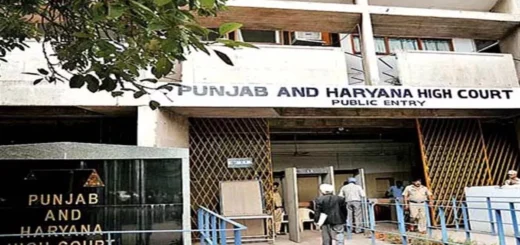The Patna High Court stated that the seriousness of the offense or the age of a juvenile cannot be reasons to deny bail under the JJ Act.

The Patna High Court has stated that the seriousness of the alleged crime and the age of the juvenile cannot be used as reasons to deny bail under Section 12 of the Juvenile Justice (J.J.) Act, 2015. The Court highlighted that bail is the standard practice, and denying it is an exception that must meet specific criteria in the Act. It also noted that placing a juvenile in an institution should be a last option, as the family is the best place for a child’s rehabilitation and reintegration. The Court overturned the decision to deny bail for a juvenile accused of murder, reinforcing that the juvenile justice system focuses on reform rather than punishment.
Justice Jitendra Kumar, in a single bench ruling, stated, “The seriousness of the alleged crime or the juvenile’s age are not valid reasons to deny bail under Section 12 of the J.J. Act.” He added, “Even a child over 16 years old accused of a serious crime is entitled to bail under Section 12 of the Act, 2015. There is no distinction made in Section 12 regarding bail eligibility. It applies to all juveniles in conflict with the law without any discrimination.” The Judge further remarked, “Reformatory or Observation Homes are options for reforming delinquent children, but the family is seen as the best and preferred setting for achieving the Act’s goals. Institutionalization should only be considered as a last resort.”
Advocate Rabindra Prasad Singh represented the Petitioner, while APP Chandra Sen Prasad Singh represented the State. The Court made comments while reviewing a Criminal Revision petition that challenged the Special Children Court’s decision to uphold the Juvenile Justice Board’s (JJB) denial of bail. The prosecution stated that on July 19, 2022, the informant’s son, Rahul Kumar, received a call around 2:45 PM and went to meet one of the accused. Soon after, he was found unconscious with gunshot wounds near Banke Rai Kucha and later died from his injuries. The informant claimed that the murder was part of a conspiracy involving the petitioner and others, including Amit Kumar Pandey, also known as Golu. The petitioner’s lawyer argued that the denial of bail was based on assumptions, noting that the petitioner had no criminal history, came from an educated family, and had no established connections to criminals. It was argued that the Special Children Court incorrectly assumed a risk of reoffending without any solid evidence. On the other hand, the State opposed bail, claiming that the petitioner was involved in a serious crime and had ties to criminal groups, making bail a potential risk.
The Court examined Section 12(1) of the Juvenile Justice (J.J.) Act, 2015, which states that bail for juveniles is generally granted, and denial is an exception. A juvenile can only be denied bail if:
- There is a risk of associating with known criminals
- Release would put the juvenile in moral, physical, or psychological danger
- Release would undermine the pursuit of justice.
The Court decided that none of the conditions applied in this situation. The Probation Officer’s Social Investigation Report showed that the petitioner’s family had no criminal history. The Court found the lower court’s claim that the petitioner might associate with criminals to be completely baseless. The High Court dismissed the Special Children Court’s argument that bail was not in the child’s best interest, stating, “The main goal of the Act is the reformation, development, reintegration, and rehabilitation of the child, and the family is the best place for the child’s care and protection. Who knows better about the child’s welfare than the parents?”
The High Court overturned the lower court’s decision and ordered the petitioner to be released on bail after providing a Rs. 10,000 bond. The petitioner’s father must also submit an affidavit promising that the child will avoid criminal influences, continue education, and attend the Juvenile Justice Board as needed. “The challenged order is not valid under the law. It is therefore set aside, and the current petition is granted, allowing the petitioner to be released on bail, provided a bail bond of Rs. 10,000 is submitted by his father. The father is also required to give an affidavit ensuring that the child does not associate with any criminals, will support the child’s development, and will ensure the child continues education and attends the J.J. Board and Courts as necessary,” the Bench stated.
Cause Title: Biswajit Kumar Pandey @ Lalu Kumar v. The State of Bihar [Criminal Revision No. 617 of 2024]









